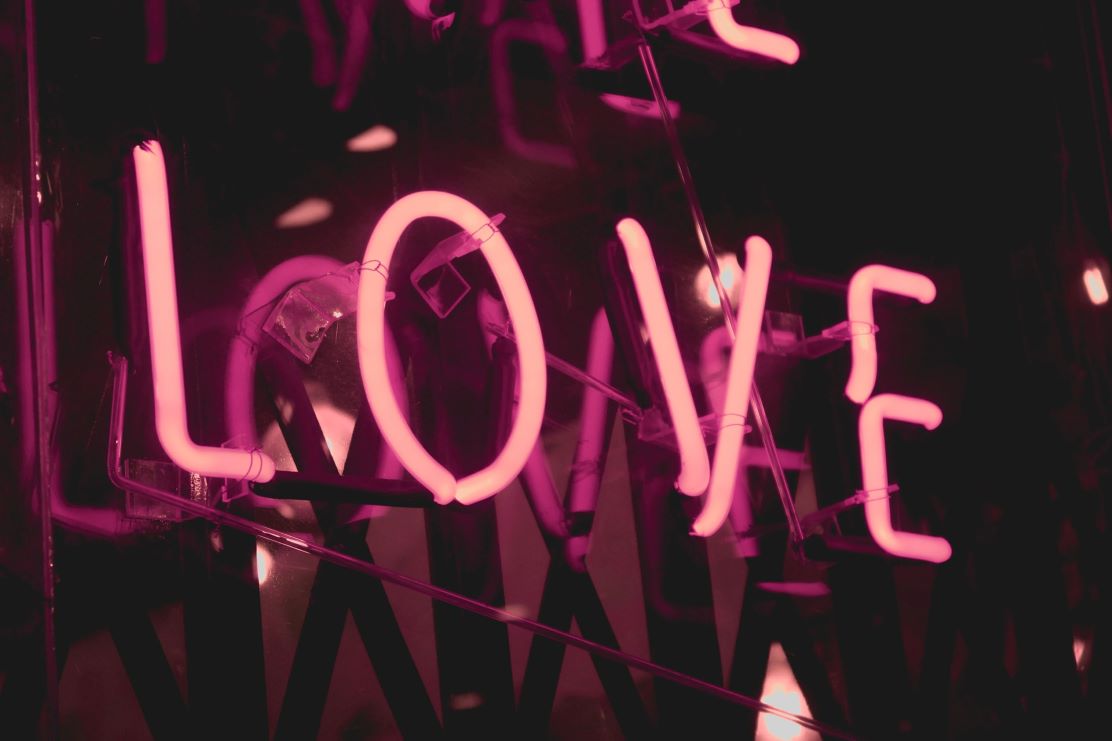How long does it take to fall in love?
When you meet someone new you’re crazy about, it’s easy to think you’re in love.
The butterflies are fluttering in your stomach, you think about them 24/7, and you’re besotted by this person.
But how do you know it’s love and not just lust or infatuation?
Some couples say they fell in love the moment they locked eyes on each other. Some say it took a few weeks or months. And others might have been together for years and still not be one hundred percent sure they’re “in love.”
So, if you’re questioning why you’re not there yet with your partner or wondering if it’s possible to fall in love as quickly as you usually do, here’s what you need to know.
Is love at first sight possible?
A 2017 survey found that 72% of men and 61% of women believe in love at first sight, while another found that approximately one-third of Americans say they’ve experienced it.
Scientific research supports this by suggesting that it takes one-fifth of a second for feelings of love to be triggered in the brain when we see someone we’re romantically interested in.
But it’s not all good news. A 2017 study in the Personal Relationships journal found that while strangers can feel an instant attraction to one another, this doesn’t include feelings of intimacy and commitment—feelings that are synonymous with love.
In other words, you can be instantly attracted to a person physically, but romantic love requires knowing someone on a deeper level.

How long does it take to fall in love?
According to a 2013 survey conducted by YouGov and eHarmony, men take an average of 88 days to say “I love you” to their partner, while women take an average of 134 days. They also found 39% of men say “I love you” within a month of dating someone, compared to 23% of women.
These stats may be surprising to many, as women are frequently labeled as more emotional, nurturing, and relationship-orientated than men.
But a 2011 study in the Journal of Personality and Social Psychology found similar results. Their results showed that men think about confessing their love at around 97 days into a new relationship, while women think about it at 149 days.
Does this change if you’re sleeping with the person in question?
Yes!
Orgasms release bonding hormones, particularly in women. So if you’re having sex, it’s likely you’ll feel love-like feelings sooner. This is why I recommend in all my coaching programs that you ladies wait a little before having sex with a guy—it will only cloud and complicate your feelings for him, so you’ve got to make sure he’s worth it.
So, if you’re wondering how long does it take to fall in love, the answer depends on lots of different factors. You can have strong feelings for someone quite quickly, but they will usually be lust or infatuation rather than the big L.
Give yourself time and space to make sense of your feelings. It takes a while to get to know someone and their true character. So if you think you’re in love a few weeks in, chances are you’re not quite there yet. Love is a long-term thing.
Remember, just because your partner declares their love for you, it doesn’t mean you should feel pressured to do the same if you’re not there yet. Take things at your own pace. Everyone is different, and every relationship is different.
Here’s what physiologically happens when you’re falling in love
A dopamine surge in your brain kicks things off
You may have heard of the hormone dopamine—it’s a neurotransmitter sending messages between your body and your brain. When you feel what you believe to be pleasure, dopamine is released.
For example, when you walk into a bar and scan the room for single men, there may be one who instantly captures your attention. This is based on the kind of man you’re looking for and desire.
Next, oxytocin comes into play.
Oxytocin is the hormone associated with attachment. Your body will release a ton of this after sex (which we discussed earlier), helping you bond with your partner and build trust.
If you’re not sleeping together, oxytocin will still come into play but in slower and smaller doses, helping you bond naturally over time.
Serotonin finishes off the love cocktail.
Serotonin is released when you deem your partner to be high-quality or high-ranking on the pyramid. That might sound a little shallow, but human beings are hierarchical at their core the same way animals are. This is because a higher-status mate usually improves the survival of your offspring.
There’s a reason you’re drawn to the man with a million-dollar business, the globe-trotter, or the athlete. And this extra hit or serotonin can be enough to make you fall in love.
You might be ready to emotionally invest.

The more time you spend together, the deeper your connection will become. With dopamine, oxytocin, and serotonin all working in harmony, you may feel a push to begin emotionally investing in this person and feel incredibly optimistic about where it’s heading.
Stages of romantic love.
According to behavioral anthropologist Helen Fisher, Ph.D., there are three stages of romantic love.
- Lust: You feel a strong physical and sexual attraction.
- Attraction: You are magnetically drawn to this person, can’t stop thinking about them, and want to be around them 24/7. You feel both excitement and nerves when you’re with them.
- Attachment: Your feelings of affection, trust, and connectedness have deepened. You feel close to your partner and secure in your relationship.
How long does it take to fall in love? It varies, but when you’re feeling all three of these stages together, you’re said to be “in love.”
Falling in love and being in love aren’t mutually exclusive events.
Have you ever wondered whether you’re falling in love or you’re actually in love?
These are two different things, but the truth is they can sometimes happen simultaneously, which might make you even more confused.
Here are signs you’re falling in love:
- You feel butterflies in your belly.
- You get nervous and excited about seeing him.
- And you find yourself listening to happy love songs a lot more (and enjoying them!)
But when you’re in love:
- There’s more to it than how attractive he is—there’s an emotional bond.
- You feel attached and connected to this person.
- The butterflies have gone and have been replaced with steady contentment.
- You’re happy having time and space apart without feeling love-sick.
- You’re comfortable having more profound, personal conversations.
- You care about this person beyond your relationship and want them to be happy.
- You find yourself wanting to be a better person.
- Being around him makes you feel full and alive, and you can always be yourself.
- You’re excited to learn more about him every day.
- You’re thinking meaningfully about a future with him.
- The word “like” doesn’t quite describe your feelings anymore.
Factors that can affect how quickly you fall in love.
Age
When you’re younger, it can feel like you fall in love quickly. This is because your feelings are new, which can make them feel overwhelming and intense. Chances are you haven’t experienced heartbreak or relationship breakdowns the way that someone in their 30s or 40s may have.
The older you are, the higher the chances that you’ve been through several breakups and may have gotten a divorce or become widowed. You’re more aware of the fragility of life and the risks that come with relationships, which may make you more cautious when it comes to opening your heart. This may mean you fall in love slower than you used to.
Relationship history
If you’ve been hurt a lot in the past, it’s natural to hold back and take things slower. This is particularly true if you’ve had an unfaithful partner. Regardless of how genuine your partner’s feelings are, it will be difficult for you to fully trust them and risk being hurt again.
In contrast, if you’ve never had a bad breakup, then you might find yourself able to fall in love a little quicker.
Mindset
How you think affects your entire life, and love is no exception.
If you’re an anxious person prone to worrying, you’re likely to take longer to fall in love (or take longer to realize it). This is because you tend to overthink things and struggle with trust.
In contrast, those with a positive mindset tend to fall in love quickly. This is because they have a sense of optimism and hopefulness. Because they hope that things will work out, they can feel their emotions and trust the process.
Personality
You might assume that confident, outgoing people are more comfortable throwing themselves into relationships and falling in love. But this isn’t always the case.
On the flip side, they might be so happy and comfortable on their own that they don’t crave a relationship the way that so many of us do. This may mean they adopt a take it or leave it approach to relationships.
Emotional intelligence
People who are more in touch with their feelings are said to be emotionally intelligent.
Those with higher emotional intelligence (EQ) are likely to form emotional bonds with someone quicker than those with a lower EQ. And this leads to them falling in love faster.
Those with a higher EQ are also more likely to recognize they’re in love when it happens, whereas people with a lower EQ are prone to misreading or ignoring the signs.
But someone with a higher EQ can also misread their own feelings. They might be feeling a strong sense of lust or attachment and mistake this for love.
Vulnerability

The key to falling in love may be in the ability to be vulnerable with each other.
In Arthur Aron’s 36 Questions experiment, two people asked each other increasingly personal questions over 45 minutes. Six months after the experiment, one of the pairs got married!
This suggests that being open and vulnerable and sharing personal things is key to falling in love. But it’s vital that you feel safe and comfortable enough to do so.
Men vs. Women
Most Hollywood movies convince us that women fall in love quickly, while men can take years to define or recognize their feelings. We also learn that men aren’t generally interested in commitment or relationships, but this couldn’t be further from the truth!
But gender does affect everything we do in life, including how long it takes us to fall in love.
As I shared earlier, studies have found that men tend to say “I love you” and fall in love quicker than women do.
Why?
It could be because we tend not to be overthinkers, we just go with it and assume things will work out!
Whereas you ladies can sometimes overthink things.
You stress about the future and your biological clocks, leading to you second-guessing your feelings and actions. This can mean you’re hesitant to admit to yourself or your partner that you’re in love.
Of course, this is a generalization because we’re all different. There are so many factors at play here, like age, personality, and relationship history.
It depends on what love means to you.
You might fall in love with someone instantly and find this is a regular occurrence for you. But it might take you years before you’re able to fully see your partner and love them for all that they are.
And isn’t that what love is all about? Knowing and accepting someone wholly, flaws and all, and loving them unconditionally?
Perhaps a better question to ask instead of how long does it take to fall in love would be, how long does it take to truly know another person?
What makes a man fall in love?

When it comes to what makes a man fall for a woman, it’s not really to do with her looks or personality. Sure, those things might matter, but they’re not enough on their own.
So, what makes a man fall in love?
It’s all about how you make him feel about himself.
A romantic relationship has to fit with a man’s identity, i.e., the type of man he desires to be. If you make him feel like the man he wants to be, then he’s likely to fall for you.
Most men love to see themselves as a hero in a relationship. That means he wants to protect you, provide for you in a way that no other man can, and be appreciated for his efforts.
Next time you’re with a guy you like, think about how your words and actions make him feel. You can find out more about this in my seven little love steps.
Should I be concerned about falling in love TOO quickly?
From a physiological point of view, once you’ve fallen in love, your brain will go, “okay, now what?”
That’s because it’s looking for a new dopamine-oxytocin-serotonin hit.
When this happens, it’s easy to start looking around and comparing your relationship to other people’s. You’re also likely to start focusing on the small number of flaws your partner has instead of the hundred amazing qualities they do have.
This is the way our brains work, and we have to consciously train them to think differently.
So while it’s okay to fall in love quickly, avoid falling into the comparison trap. And don’t put all your focus and attention on your partner either. Remember to enjoy building your life outside of your romantic relationship. That means seeing friends, building your career, and pursuing your passions and interests.
Pause before blurting out, “I love you.”

If you feel an urge to tell a guy you love him, that’s great. But before you do, pause for a moment.
Ask yourself, why do I want to say this now? Is this the right time? Am I just afraid that I might lose them if I don’t say it? Or am I caught up in the relationship’s honeymoon phase and looking at him with blinders on?
Check-in with your feelings. Think about why you want to express them. This might help you find the perfect way and moment to declare them.
Conclusion: How long does it take to fall in love? It depends on the person!
There really isn’t a definitive answer to how long does it take to fall in love. There’s no timeline for when you should fall in love.
It depends on you and him, and timing, and several different factors. Some people will fall hard and fast, while others will find it’s more like a slow-burn.
But to really fall in love with someone, I think you need enough time to get to know them on a deep level. Your love has to extend beyond all the things you like about him, to his faults and weaknesses. This is what it means to love someone—you love every part of them, and you love them through the challenging moments that life throws your way.
While there’s no way to fast-forward the process, there are many ways to nurture your connection with someone and give those feelings a better chance to manifest and bloom.
What’s the quickest or longest time it has taken you to fall in love? And how did you know it was real love?
Tell me all in the comments below.

Also, if you’d like to join me on a brand new webinar to learn “why men flake, avoid commitment and consistently ghost until they meet a woman who’s following these 7 simple steps”, then register here (it’s 100% free).














